#byd china electric car
Text
Chinese "Evergrande" has begun mass producing its first electric vehicle (EV) model; will they reach their target of 1 million units by 2025?
Chinese “Evergrande” has begun mass producing its first electric vehicle (EV) model; will they reach their target of 1 million units by 2025?
Hong Kong headquarters-based property developer now getting into EV markets. In the last year or so Evergrande’s name was taken the spotlight with an enormous $300 billion debt crisis. This year they were forced to sell $1.2 billion in properties to pay up the lenders. Also, their 26-story tower near the city of Hong Kong Island was taken by lenders and the Chinese central government had to step…
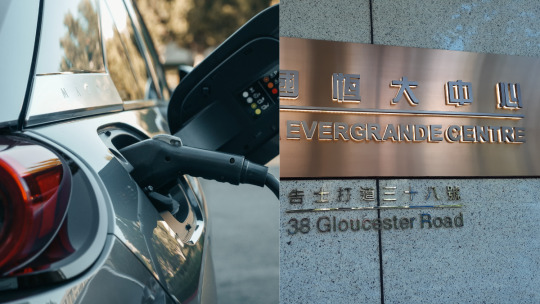
View On WordPress
#all electric cars#american electric car companies#bmw electric car#byd#byd battery#byd china electric car#byd company#byd e6#byd f3#byd han#byd hong kong#byd tang#charge point#charging stations near me#cheapest electric car#cheapest electric car europe#china best electric car#china cheap electric car#china electric car price#china electric vehicles#china ev car#chinese electric car#chinese electric vehicles#chinese ev#chinese ev cars#chinese mini electric car#cybertruck#electric car charging stations#electric car china alibaba#electric car companies
0 notes
Text
youtube
Volvo EX30 vs BYD Dolphin - Best affordable compact EV?
Me and my brother compare 2 of the most affordable electric cars on the market. But which one is the best, the BYD Dolphin or The Volvo EX30?
#Sweden#Volvo EX30#China#Volvo EX30 vs BYD Dolphin#BYD Dolphin#electric car#electric vehicle#russian defeat#trump's defeat#Youtube
2 notes
·
View notes
Text
BYD vs Tesla: The Race to Lead the EV Market
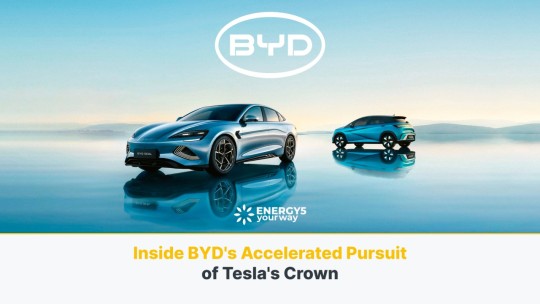
In the dynamic world of electric vehicles (EVs), BYD stands out as a formidable contender against Tesla. Originating as a battery company in 1995, BYD has diversified into manufacturing EVs, buses, and trucks. Here are some key points about their journey:
Growth Strategy: BYD’s success stems from its vertical integration, producing essential components like batteries in-house. This approach has been pivotal in making its EVs competitive.
Innovative Battery Technology: BYD's proprietary Iron-Phosphate (LFP) batteries set them apart, offering safety and longevity, and reinforcing their commitment to sustainable practices.
Warren Buffett's Influence: Buffett's Berkshire Hathaway invested in BYD in 2008, bolstering its credibility. Although they've recently reduced their stake, this investment was crucial for BYD's early global recognition.
Global Sales Race: BYD is rapidly gaining on Tesla in global EV sales. With over 170,000 EVs sold recently, they're expanding their international footprint, evidenced by the launch of the Seal electric sedan in North America.
Looking forward, BYD faces challenges amidst economic uncertainties and fierce competition. Yet, their strategic expansions and innovative products, like the new electric SUVs, position them as a strong Tesla rival. The future of BYD in the EV market, while promising, demands continuous innovation and adaptation.
#byd#tesla#evbattery#evcharging#warren buffett#electricvehicles#ev sales#EV Market#electric cars#suv#electric suv#china#battery#renewableenergy#sustainability#environment
1 note
·
View note
Text
Electric Cars: BYD and Tesla Dominate Global EV Sales
— By Felix Richter | September 5, 2023
Some of the world’s leading car makers are among the exhibitors at IAA Mobility 2023 in Munich this week, where the electric future of mobility will once again take center stage. While German legacy car brands such as Volkswagen, Mercedes and BMW will try to make an impression on their home turf, they have fallen behind in the transition to electric cars lately, as they understandably continue to work on international combustion engines as well, while smaller, more specialized companies such as Tesla and Chinese market leader BYD have raced ahead.
In the first half of 2023, BYD alone sold almost 1.2 million plug-in electric vehicles (incl. plug-in hybrids), roughly double the combined total of BMW, Volkswagen and Mercedes. To make things worse for Germany’s automotive heavyweights (and other European carmakers), the company that recently surpassed Volkswagen as the number 1 car brand in China now has Europe in its sight. On Monday, BYD presented six models for the European market in Munich, showing that it means business in the market it entered less than a year ago. Between January and July, the company sold 92,469 EVs overseas, already exceeding the total of 2022.

It remains to be seen, however, how European consumers respond to the Chinese newcomer, as there is still a bit of a stigma attached to cars made in China, especially in Germany, which prides itself on its automotive excellency. The following chart, based on estimates from CleanTechnica, shows that BYD and Tesla have opened up a sizeable lead in the global EV market, where other Chinese brands such as GAC Aion, SGMW and Li Auto are also among the largest players thanks to their huge home market.
#Electric Cars#China 🇨🇳#U.S. 🇺🇸#Germany 🇩🇪#BYD 🇨🇳 | Tesla 🇺🇸 | Global Electric ⚡️ Vehicles#Felix Richter
0 notes
Text
BYD surpasses Tesla in global EV production ranking (infographic)

- By Nuadox Crew -
The following infographic ranks the top 15 electric vehicle brands by global production output as of 2022.
The utilized data comes from EV Volumes.
BYD Auto surpassed Tesla to take the number one spot, increasing output from 2021 to 2022 by a staggering 211%.
> View full size image

> Full size image
Source: Marcus Lu, Sam Parker, Visual Capitalist
Read Also
China: Volkswagen invests €1B in connected EV center
#ev#byd#byd auto#tesla#china#electric cars#electric vehicles#manufacturing#cars#transportation#transport
0 notes
Text
You can’t buy the Seagull in the US. But I bet you wish you could.
A small hatchback around the size of a Mini Cooper, the Seagull is a fast-charging electric car and claims a range of up to 250 miles [...] BYD, its Chinese manufacturer, claims it can go from 30 percent to 80 percent charged in a half-hour using a DC plug. It’s hardly a luxury car but it’s well-equipped, with a power driver’s seat and cruise control. “If I were looking for an inexpensive commuter car … this would be perfect,” veteran car journalist John McElroy said after taking a drive.
The best part? Its base model costs about $10,700 in China.
That’s about a third of the cost of the cheapest EV you can buy in the US. In South America, it’s a little pricier, but still fairly affordable, at under $24,000 for a top-trim version. Even in Europe, you can get an entry-level BYD for under €30,000.
These are absolutely screaming deals — exactly the kind of products that could turbocharge our transition away from gas and toward electric vehicles.[...]
The problem for Americans? The Biden administration is hell-bent on preventing you from buying BYD’s product, and if Donald Trump returns to office, he is likely to fight it as well.
That’s because the BYD cars are made in China, and both Biden and Trump are committed to an ultranationalist trade policy meant to keep BYD’s products out. [...] Shipments to Europe have increased astronomically; Chinese companies sold 0.5 percent of EVs in Europe in 2019 but they’re already over 9 percent as of last year. Companies like BYD make cheap, reasonably good-quality cars people are eager to buy.
In 2018, Trump imposed, and Biden has since continued, a special 25 percent tax on Chinese-made autos, on top of the ordinary 2.5 percent tax on foreign-made cars.
That has so far prevented BYD and its Chinese peers from trying to enter the US market. US customer tastes are different enough that Chinese manufacturers would probably prefer to make cars tailored to them — but US policy has been so hostile toward cheap Chinese EVs that so far, the companies haven’t wanted to bother.
So, the result is that we’re left out of the bounty of cheap EV options created by BYD and others. “If you’re a consumer right now, the best place to be right now is China, because you have the best choice of EVs,” Ilaria Mazzocco, senior fellow at the Center for Strategic and International Studies and an expert on Chinese EVs, says.[...]
Still, China’s price advantage is big enough that even the extreme Trump-Biden import tax might not be enough to deter companies like BYD from entering the US market. Even with the tariffs, Chinese cars might be cheaper than their rivals. “Subsidies most likely won’t be enough; Mr. Biden will need to impose [more] trade restrictions,” climate journalist Robinson Meyer predicted recently. The Biden administration is already making noise about imposing even more draconian taxes or trade restrictions against these vehicles. Commerce Secretary Gina Raimondo has described Chinese-made cars as a national security threat, and recently announced an investigation into the vehicles’ data collection abilities and the possibility they could send movement data to Beijing.
On the one hand, Biden is offering Americans up to $7,500 per vehicle to buy EVs (provided they meet certain made-in-North America rules). On the other hand, he’s imposing massive taxes to keep Americans from buying EVs. It’s a bizarre policy that makes no sense from a climate perspective.[...]
[The Biden Administration] has proven shockingly willing to sabotage its own climate policy if it gets to stick it to the Chinese in the process.
“There’s almost an across-the-board apprehension about Chinese EVs, even though they would make an important contribution to [lower] CO2 emissions,” Gary Clyde Hufbauer, a veteran trade expert at the Peterson Institute for International Economics, says.[...]
Realistically, Helveston argues, BYD might not sell something like the Seagull in the US because it’s smaller than most cars Americans buy. They’d probably build plants in the US instead, or its free-trade zone partners Canada and Mexico, to build vehicles tailored for Americans. “If you’re going to really enter a market, you have to make it locally,” Helveston explains. “US automakers like GM sell and make millions of cars in China to sell in China.” BYD would do the same. Indeed, it’s already reportedly scouting sites for factories in Mexico.
If they ever were to set up shop in North America, BYD and other Chinese car companies would still have a major price advantage versus American EVs. They have years more experience and a much more successful track record of building batteries and EVs at low cost.
“Part of why they’re so successful is they’ve been thinking outside the box on cost reduction for a long time,” Mazzocco says. They took the “opposite of the Tesla approach”: starting not with luxury vehicles but ultra-cheap cars fit for taxi fleets and not much else, and constantly improving their early inexpensive prototypes. The result is that Chinese firms have gotten extremely good at making inexpensive EVs, at a time when Ford, by contrast, lost $28,000 for every EV it sold in 2023.[...]
“If you have more affordable EVs in the United States, no matter where you come from,” Gopal says, “that’s better for the climate.”
Still, the Biden administration reportedly wants to restrict Chinese car companies’ access to the US even if they do set up shop in North America. Bloomberg reported earlier this month that the Biden administration is formulating rules that would limit US sales of Chinese-made parts, even if they’re in vehicles ultimately assembled in the US or Mexico.[...]
But the Biden administration’s objections to Chinese EVs are also ideological. The Biden administration represents the victory of a protectionist, trade-skeptical wing of the Democratic party that was relegated to the sidelines during the Clinton and Obama years.[...]
[O]ver 90 percent of American households have a car, and surging car prices were a huge contributor to the 2021–2023 rise in inflation.
Barriers to importing cheap cars make inflation worse and reduce the real incomes of the middle class.
Not only are the administration and other left-leaning institutions opposed to Chinese EVs, but hardline conservatives at places like the Heritage Foundation are calling for outright bans on Chinese EVs as well. Their rationale is security, another theme the Biden administration evokes often. On Thursday, the Commerce Department announced it was beginning a process to “investigate the national security risks of … PRC-manufactured technology in [internet-connected] vehicles.”
6 Mar 24
518 notes
·
View notes
Text


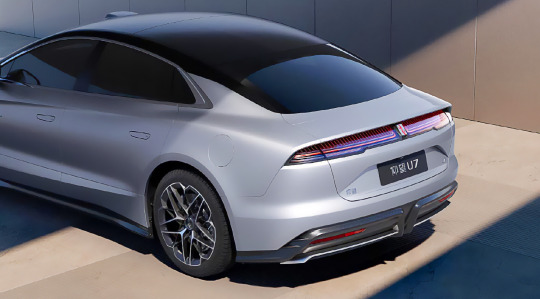

Yangwang U7, 2024. A new super saloon from the fledgling BYD subsidiary that will produce over 1000hp using 4 electric motors. The all wheel drive sedan is claimed to be one of the most aerodynamically efficient cars to enter production, with a 0.195Cd. BYD announced that the new Yangwang flagship will cost in excess of ¥1 million (£109,650/$141,000) in China.
#Yangwang#Yangwang U7#BYD#sports saloon#super saloon#new cars#all heel drive#aerodynamic#1000hp#4 motor
56 notes
·
View notes
Text
“They’re not ready,” said Stella Li, chief executive of BYD Americas. “For BYD, we are ready. We are ready for technology, and we are more ready on supply chain,” she told NBC News in an exclusive interview in April at BYD headquarters in the southern city of Shenzhen, where SUVs, sedans and other gleaming models are displayed in the cavernous lobby.
Despite lower price tags, Chinese EVs often have more powerful batteries and more advanced technology.
But they are not available in the U.S., where they face high trade barriers and allegations that Chinese government subsidies have given them an unfair advantage. The Alliance for American Manufacturing, an advocacy group, says the introduction of Chinese cars to the U.S. market would be an “extinction-level event” for the U.S. auto industry.
Is funny how the Big Electric Car Guy is so entangled with China that he would be in trouble if he lobbies for tariffs with China. Guess it's lucky for him that it doesn't look like he needs to.
26 notes
·
View notes
Text
youtube
Excerpt from this story from the Associated Press (AP):
A tiny, low-priced electric car called the Seagull has American automakers and politicians trembling.
The car, launched last year by Chinese automaker BYD, sells for around $12,000 in China, but drives well and is put together with craftsmanship that rivals U.S.-made electric vehicles that cost three times as much. A shorter-range version costs under $10,000.
Tariffs on imported Chinese vehicles probably will keep the Seagull away from America’s shores for now, and it likely would sell for more than 12 grand if imported.
But the rapid emergence of low-priced EVs from China could shake up the global auto industry in ways not seen since Japanese makers exploded on the scene during the oil crises of the 1970s. BYD, which stands for “Build Your Dreams,” could be a nightmare for the U.S. auto industry.
“Any car company that’s not paying attention to them as a competitor is going to be lost when they hit their market,” said Sam Fiorani, a vice president at AutoForecast Solutions near Philadelphia. “BYD’s entry into the U.S. market isn’t an if. It’s a when.”
U.S. politicians and manufacturers already see Chinese EVs as a serious threat. The Biden administration on Tuesday is expected to announce 100% tariffs on electric vehicles imported from China, saying they pose a threat to U.S. jobs and national security.
11 notes
·
View notes
Text
Bernie Moreno knows the auto industry as the founder of one of the largest dealerships in the country. He sees the intentional decimation of the entire sector, with China being the main beneficiary. Members of the Trilateral Commission who built China in the first place are licking their chops as they see the approaching economic merger with that country and the final absorption of the U.S.
When The Genesis of Modern Globalization hits book stands soon, you will see how this was set in motion in the 1970s by people like David Rockefeller, Henry Kissinger, and Zbigniew Brzezinski, all founding members of the Trilateral Commission. China ravaged industry after industry in the West and is now coming for auto manufacturing. We now see the result of Brzezinski’s Technetronic Era (See his book, Between Two Ages: America’s Role in the Technetronic Era) The Trilateral Commission’s New International Economic Order was TECHNOCRACY. ⁃ TN Editor
Ohio Republican U.S. Senate candidate Bernie Moreno told Sirius XM’s Breitbart News Saturday that the “manic move to electric vehicles” will “destroy” the U.S. auto industry and greatly benefit China.
Moreno, who established one of the largest auto dealership groups in the United States, joined the program just days after President Joe Biden announced a new rule on Wednesday requiring most cars sold in the U.S. by 2032 to be EVs or hybrids.
“This irrational move towards electric vehicles – this manic move to electric vehicles is going to destroy the auto industry in America,” he told Breitbart News Washington Bureau Chief Matthew Boyle.
Moreno, who is squaring off with Sen. Sherrod Brown (D-OH) in the Buckeye State race, said that the left’s push for electric vehicles is handing the U.S. auto industry over to China.
“You look at the Buick electric vehicles that are coming out – almost all of them made in China. The Lincoln electric vehicles are all going to be mostly produced in China. The batteries are mostly produced in China,” Moreno said. ‘So we’re going to hand our auto industry, which at one point was almost seven percent of our gross domestic product (GDP), over to our enemy, China. It is insane.”
“China has a company that people will start hearing a lot about called BYD,” the Trump-backed candidate added. “They’re building these giant, massive factories in Mexico and want to ship these cars over to the U.S. – $15,000-$20,000 electric vehicles – that would decimate our auto industry in America. Sherrod Brown is all in for that.”
This is the “bloodbath” former President Donald Trump was speaking about at a Buckey Values PAC rally for Moreno in Dayton, Ohio, on March 16. In his full quote that was not taken entirely out-of-context by the legacy media, Trump said he would “put a 100 percent tariff on every single car” that China builds in Mexico and tries to sell into the United States market. However, if he is not elected president, he predicts China will flood the U.S. market with its cheaply made cars, causing a “bloodbath” in the U.S. auto industry.
“If you’re an auto worker, if you’re a union worker in Ohio, Sherrod Brown is not looking out for you,” Moreno said Saturday. “He is going to destroy your career, destroy your livelihood. We’re going to change that. Vote for me, vote for Bernie Moreno against Sherrod Brown, and I’ll make sure we preserve your job.”
The Republican candidate also emphasized that the federal government “should not incentivize or penalize” consumers to purchase a particular kind of car.
“I started with one tiny little dealership. I built a group of 15 dealerships representing 30 brands, probably in my life responsible for my company selling over a million automobiles. Never did I have a client walk in my showroom and say, ‘What kind of car does Sherrod Brown or Joe Biden want me to buy?’” Moreno told Boyle. “That’s not the way our markets work.”
“People should be allowed to make their own choices. We should not incentivize or penalize people to buy one kind of car or the other,” he added. “People know what’s best for them and their family; that’s a basic American tenet, but Sherrod Brown thinks he’s smarter than everybody else. He thinks he should be the one that tells you what kind of car to drive.”
Read full story here…
9 notes
·
View notes
Text
Jubilant Lincoln L100
Some say Luxury comes with Lincoln, a futuristic old car brand with great technology all over the brand name. the all-new model L100 concept may be the most dramatic example of the old and future combination. Modern looking, more aerodynamic, and bolder design was a jaw-dropper for everyone at the Pebble Beach show.
Recently, design teams were working hard for a more silk and futuristic car.…
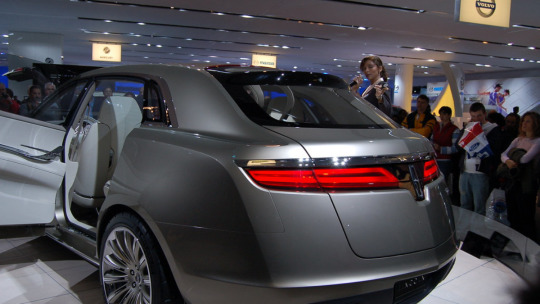
View On WordPress
#1970 dodge challenger#2014 dodge charger#2015 challenger#2015 dodge charger#2021 lincoln aviator#2021 lincoln nautilus#2021 lincoln navigator#all electric cars#american electric car companies#aviator#bmw electric car#boss 429#byd#byd battery#byd china electric car#byd company#byd e6#byd f3#byd han#byd hong kong#byd tang#challenger#challenger car#challenger demon#challenger srt8#charge point#charger rt#charging stations near me#cheapest electric car#cheapest electric car europe
0 notes
Text
youtube
BYD Dolphin Review: The new budget EV of choice?
BYD might not be a household name in the UK just yet, but cars such as the Dolphin and Atto 3 seem likely to change that. In the case of the Dolphin, the Chinese brand is offering a small car with easily enough interior space to transport four tall adults, a range of up to 265 miles in the bigger battery model, and a price starting from around £26,000. In this CarGurus UK review, Vicky Parrott explores the Dolphin's many plus points, as well as highlighting where it falls short compared with more established rivals. Would you consider a BYD Dolphin over an MG4?
P.S. It's a shame that VW and the rest of the European automakers can't produce something like this, but would I buy a BYD Dolphin in real life? After the Russian attack on Ukraine, most likely not! The question is, what will you do with your Chinese cars when Communist China will go to war against the West??? No, thanks, I won't buy a car from a Chinese carmaker because of the political and military security risks, even if I berate VW management for its ineptitude...
#UK#byd dolphin#electric hatchback#electric vehicle#electric car#chinese car#ev review#Volkswagen#russian invasion#communist china#affordable EV#Youtube
2 notes
·
View notes
Text
#corporate greed#Tesla#BYD#Chinese EV’s#elongated muskrat#oligarch asshole#Republican asshole#Republican fascist propagandist
16 notes
·
View notes
Text
Waves of Chinese Electric Vehicles Are Pouring Into Brazil
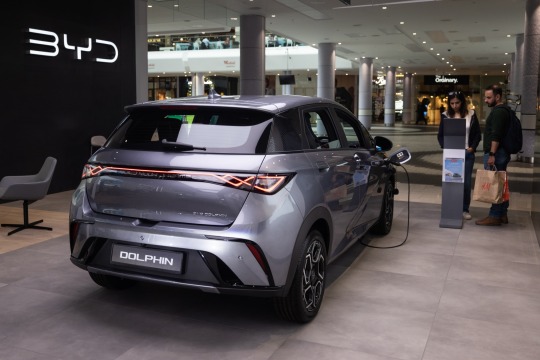
If Chinese electric vehicles are about to flood the world economy — as many US and European officials worry about — then Brazil is a case study worth watching in the months ahead.
Last week the Chinese automaker BYD landed in Brazil with more than 5,400 cars aboard a single ship to supply its main foreign market and to anticipate the increase in an import tariff.
The Explorer No.1, a vessel that began operating in January and will be part of a fleet of eight from the Shenzhen-based company, has made only two trips since its debut. The first was to Europe and now it has docked at the Suape Port, in the Brazilian state of Pernambuco.
The journey took 27 days from China, with a crew of 23 people and a load completely filled with electric and hybrid vehicles of eight different models, two of which have yet to be launched in Brazil — the King sedan and the Song Pro sport utility vehicle.
Continue reading.
#brazil#brazilian politics#politics#china#economy#international politics#mod nise da silveira#image description in alt
2 notes
·
View notes
Text
China revealed this week it aims to spend more than a billion dollars to bolster manufacturing and domestic tech in a bid to remain globally competitive, while divulging little new support for the struggling real estate market.
Industrial support clearly ranked first on Beijing’s priority list for the year ahead, according to three major plans released this week as part of China’s annual parliamentary meetings.
One of those reports, from the Ministry of Finance, said the central government would allocate 10.4 billion yuan ($1.45 billion) “to rebuild industrial foundations and promote high-quality development of the manufacturing sector.”
While that’s down from the 13.3 billion yuan earmarked for the same category last year, the sector overall gained greater prominence. In 2023, plans to spend on industrial development came second to support for consumption.
“Unlike other economies that went through a wrenching adjustment in their housing market, China’s investment rate isn’t falling,” HSBC’s chief Asia economist Frederic Neumann and a team said in a report Friday. “Instead, [capital expenditure] is shifting towards infrastructure and, importantly, manufacturing.”[...]
Chinese authorities in 2020 intensified a crackdown on real estate developers’ high reliance on debt for growth. Property sales have since plunged while developers have run out of money to finish many projects, cutting into what was once about 25% of China’s GDP when including related sectors such as construction.[...]
Despite widespread attention on whether Beijing would bail out the property sector, real estate got no mention in the finance ministry’s spending plans, and limited attention in a ministry-level press conference about the economy during the parliamentary meetings. Instead, the housing minister was included in the lineup for a press conference about people’s livelihoods.
“Supporting the modernization of the industrial system” came first in the finance ministry’s report, followed by “supporting the implementation of the strategy of invigorating China through science and education.”
Within that second priority, the finance ministry said it would allocate 31.3 billion yuan for improving vocational education. Amid high youth unemployment, especially for university graduates, electric car company BYD and battery maker CATL are among those working with vocational schools to train staff for their expanding workforce.[...]
The report from the National Development and Reform Commission, the top economic planner, reiterated government plans to support some developers’ financing needs — under the eighth item on the priority list that called for preventing financial risks. The government work report presented by Premier Li Qiang gave real estate a similar level of prominence.
8 Mar 24
China will improve home sales in a "forceful" and "orderly" way, Minister of Housing and Urban-Rural Development Ni Hong said on Saturday (Mar 9), as weak demand in the country's beleaguered residential property market persists.[...]
Some developers should be allowed to go bankrupt or restructured according to legal and market-based rules, Ni said told a press conference on the sidelines of the annual meeting of parliament in Beijing.
Premier Li Qiang said this week that China will quicken the development of "a new model" for the troubled sector, focussing on building more affordable housing and meeting demand for homes.
But China will insist that "housing is for living in, not for speculation" when formulating a new development model for the sector, Ni said, reiterating an official line against property speculation.
9 Mar 24
184 notes
·
View notes
